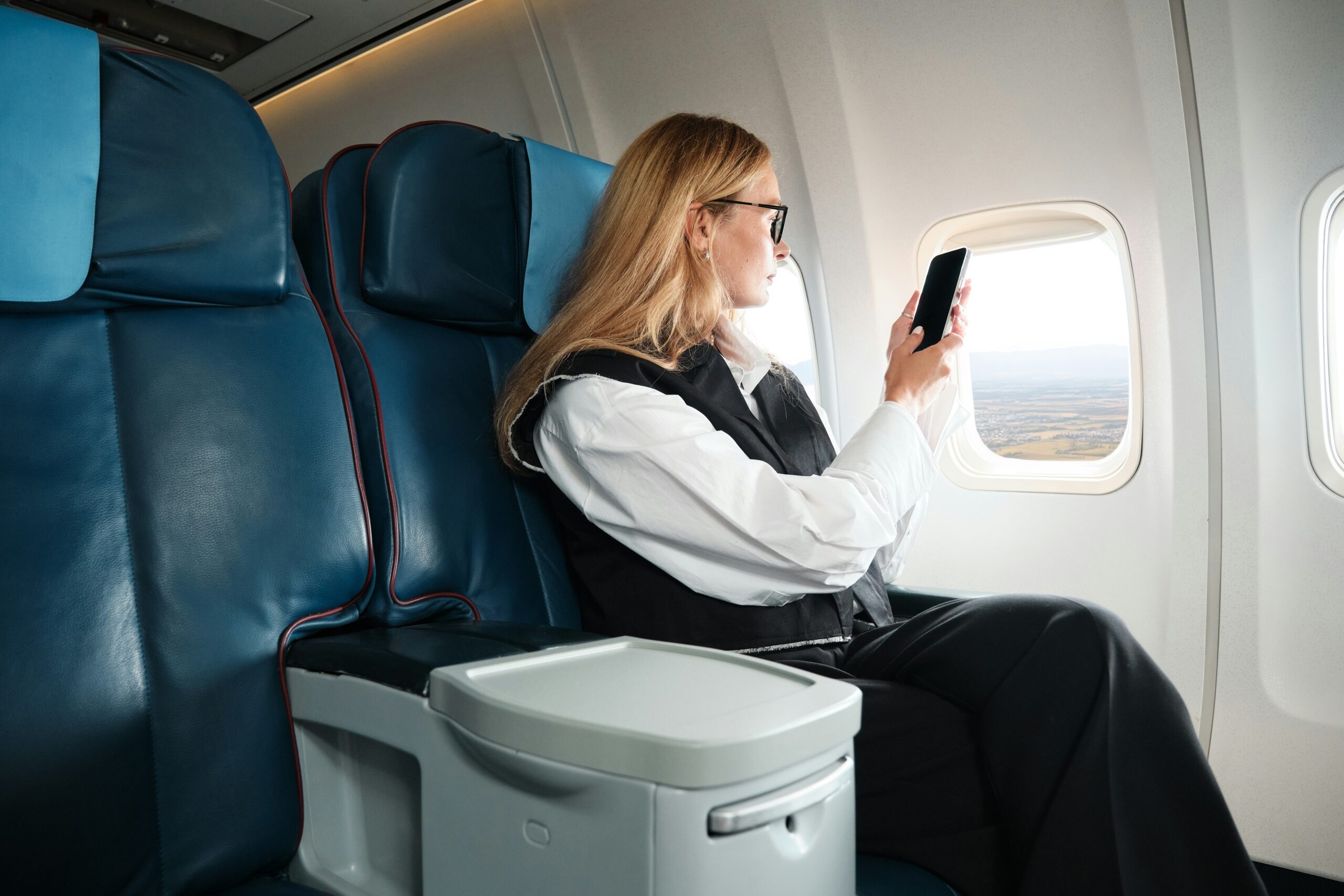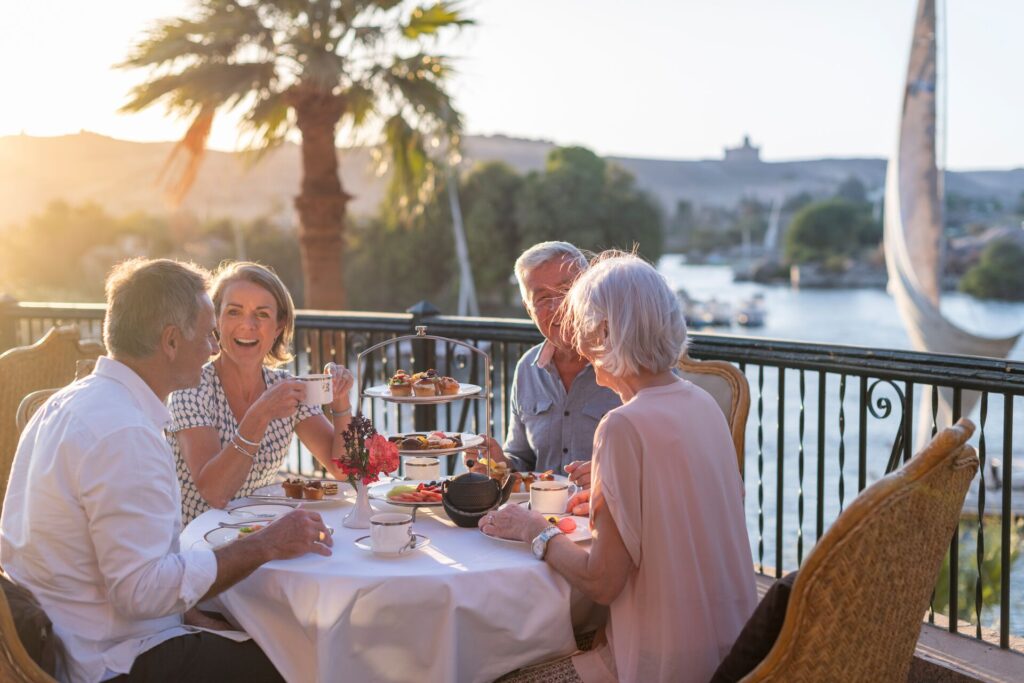
Traveling is an exciting opportunity to explore new cultures, meet diverse people, and experience life from different perspectives. However, understanding travel etiquette is crucial to ensuring pleasant interactions and fostering positive relationships with locals and fellow passengers alike. Whether you’re boarding a long flight or sampling local delicacies, practicing travel etiquette can significantly enhance your journey. To help you out, we’ve put together a handy guide, and two of our expert Travel Concierges share their top travel etiquette tips.
Respect for Language and Culture
Before you head off on your journey, embracing a few key aspects of pre-trip etiquette means that once you arrive at your destination you’re already in tune with local culture and customs.
Learn a Few Key Phrases: Learning basic words and phrases in the local language, such as “hello,” “good morning,” “please,” and “thank you,” can greatly enhance your trip. This effort shows respect for the local culture and often fosters friendlier interactions. In many places, locals appreciate your attempt to communicate in their language, which can lead to more attentive and kind service from servers and others you encounter.
Research Local Customs: Each destination has its own unique customs and etiquette that can sometimes surprise travelers. For example, in Japan, tipping after a meal is often considered rude, while in many Asian countries, showing the soles of your feet is seen as disrespectful. In India and the Middle East, eating with your hands is customary, but using your left hand can be viewed as impolite.
Consider Local Religion and Sensibility When Packing: Clothing plays a vital role in demonstrating respect for local customs. In many regions, especially in Muslim-majority countries, it’s advisable to cover your arms and legs to ensure comfort for both yourself and the locals. Additionally, when visiting temples in Asia or churches in Italy, it’s important to make sure your shoulders are covered.
You may also enjoy reading: 100% Meaningful, 100% Memorable: Why Every Luxury Gold Journey Matters
Don’t Expect Things to be the Same as Home
When traveling, it’s essential to embrace the differences you’ll encounter rather than expecting things to mirror your home environment. Be open-minded and patient; understanding that others may have distinct ways of life will enrich your experience.
“A huge part of cultural expression is seen through the cuisine of a destination. When you visit a new country part of the joy is embracing their food and ways to prepare it,” says Travel Concierge Dom, who specializes in Iberia. “In fact, it is these differences that bring the country alive through your taste buds.
“I have seen visitors become annoyed in Spain when butter is not served with bread, primarily in places south of Madrid, when in fact they are visiting the largest olive oil producing country in the world. With a product this tasty, my advice is to try the many varieties and find one that you love. Of course you can always bring your own butter! But whatever you do, be polite about it.”
You may also be interested to read: Sunshine on a plate: Travel Concierge Dom on his love of Iberia
Dining Etiquette
Eating food and sharing a meal is one of the best ways to learn about another culture and make friends with locals.
Learn the Local Ways: Dining etiquette varies significantly across cultures, so it’s wise to research local customs before you arrive. For example, burping during a Chinese dinner is a compliment, while doing so at a British Sunday roast would not be the case. In Egypt, requesting salt and pepper if it’s not on the table is seen as bad manners, whilst in Japan, slurping noodles or soup is acceptable, but in Brazil, eating with your hands—including hamburgers and fries—is considered unclean.
Try the local foods, gracefully: Trying local foods is a vital part of experiencing a culture. Embrace new flavors, textures, and culinary traditions with an open mind and positive attitude, even if they differ from your usual preferences. Avoid negative comments or grimacing at unfamiliar dishes, instead ask questions and expressing appreciation. This respectful approach fosters genuine connections and you may just surprise yourself with what you like.
If you love sensational dining, we recommend you read: 5 Michelin Star chefs celebrating local culture through food
Etiquette up in the Sky
Such a key part of many vacations, air travel requires close contact with others, whatever class you travel, and exhibiting proper etiquette is essential. Understanding the subtle rules of conduct can significantly enhance your journey and the experiences of those around you.
“Being considerate of your fellow travelers and respecting their personal space is very important,” says Karen Gower, who was a Travel Concierge for over 10 years before becoming Senior Travel Experiences Manager Europe at Luxury Gold. “Something that I have seen more in recent years that I find very frustrating is people watching movies without headphones and expecting the rest of the plane to participate in their in-flight entertainment. However, it is also disruptive when people keep their headphones in and therefore miss all the announcements from the flight attendants, such as telling them to sit down!
“My advice to travelers to ensure that flying remains an enjoyable journey rather than a burdensome task is to always read your information. Even knowing all your boarding info, such as whether to board at the front or the back, and knowing how to navigate the security line can greatly enhance the experience and leave everyone feeling fresh and relaxed.”
Hear more wisdom form Karen: How Luxury Gold Journeys Go Above and Beyond with Expert Karen Gower

Whose armrest is whose? A valuable travel etiquette tip regarding armrests is to recognize the seating hierarchy: the window seat enjoys the armrest closest to the window, the aisle seat claims the outer armrest, while the middle seat—often regarded as the least desirable—has a right to both center armrests. Acknowledging this simple guideline can help reduce discomfort and tension during crowded flights, making the journey more pleasant for everyone.
Seat etiquette: Avoid reclining your seat during meals, as it can encroach on the space of the person behind you.. and take care not to overly knock the seat in front. If you plan to get up often, consider reserving an aisle seat for easier access.
Personal Grooming and Scents While personal care routines are popular on flights, do pay attention to how it affects your fellow travelers. Strong perfumes and scented personal care items can be overwhelming in the confined space of an airplane. A subtle spritz may seem like a good idea, but actually not welcomed by your neighbor.
Bookmark for later: Flying First Class: The Luxury Gold First-Timer’s Guide
Of Course, There’s Always Your Luxury Gold Travel Concierge
There is nothing more awkward than arriving in a foreign country without being familiar with the customs, which is where your Travel Concierge comes in. At the helm of every Luxury Gold journey, they’re an expert in the local culture and language. Offering insights into appropriate behaviors, dining protocols and cultural nuances, they help you navigate unfamiliar environments with confidence, ensuring you have the best experience, as well as ensuring a seamless, flawless journey from start to finish.















Leave a Comment